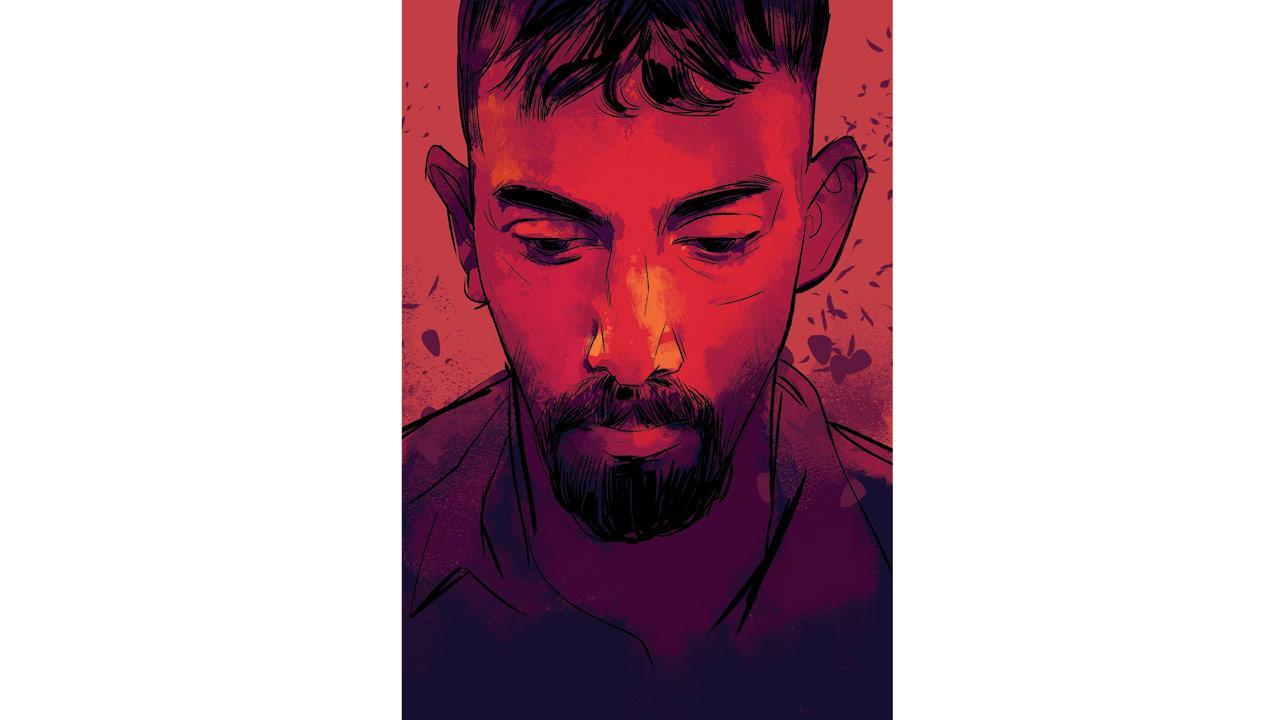In the climax, Michael is forced to contend with the dilemma of whether he can be loyal to one identity without betraying the other

Illustration/Uday Mohite
 Lawrence Valin’s Little Jaffna was one of the most thrilling breakout South Asian diaspora films at last month’s 49th Toronto International Film Festival, TIFF. An outstanding thriller-drama with ferociously kinetic energy, and delightful humour, you still felt the ache of the conflict of its double identity protagonist--is he more French or is he more Sri Lankan Tamil—a dilemma experienced by migrants universally. The story is about an undercover French cop of Sri Lankan Tamil origin, assigned to infiltrate the Sri Lankan Tamil criminal gangs in Little Jaffna, in Paris, in order to deactivate them.
Lawrence Valin’s Little Jaffna was one of the most thrilling breakout South Asian diaspora films at last month’s 49th Toronto International Film Festival, TIFF. An outstanding thriller-drama with ferociously kinetic energy, and delightful humour, you still felt the ache of the conflict of its double identity protagonist--is he more French or is he more Sri Lankan Tamil—a dilemma experienced by migrants universally. The story is about an undercover French cop of Sri Lankan Tamil origin, assigned to infiltrate the Sri Lankan Tamil criminal gangs in Little Jaffna, in Paris, in order to deactivate them.
ADVERTISEMENT
Valin, who was born in France and is of Sri Lankan Tamil origin, is an alumnus of the film school La Femis in Paris, and directed two shorts, Little Jaffna and The Loyal Man, before co-writing, directing and acting in his debut feature, Little Jaffna. The film has a few autobiographical elements, and Valin told me he was sick of the roles he got as a brown actor in French cinema, so he became a director-writer and wrote himself a meaty role.
Michael Beaulieu (Lawrence Valin) is a brown-skinned French policeman of Sri Lankan Tamil origin, assigned to infiltrate a Sri Lankan Tamil criminal gang based in Little Jaffna, Paris, in order to deactivate them, as they are also extortionists funding the Eelam liberation movement back home in Jaffna, Sri Lanka, during the civil war that ravaged the island nation from 1983-2009. Michael finally gets the acceptance of his native community, even as it falls foul of French laws (the European Union declared the Liberation Tigers of Tamil Eelam, LTTE, a terrorist organisation in 2006). He earns his spurs when he jumps in to a fight between rival gangs, the Killiz (a Sri Lankan parakeet) and the Sura. He befriends Puvi (Puviraj Raveendran), and is inducted into the gang by the kingpin Aya (Vela Ramamoorthy). Starting out as a waiter in a restaurant belonging to Aya, who runs multiple legal and illegal businesses—some with deadly collateral damage—he rises in the ranks, slowly earning the trust of his native community. In the climax, Michael is forced to contend with the dilemma of whether he can be loyal to one identity without betraying the other.
The direction is remarkable especially for a debut feature. Valin does mainstream and genre with panache, with full-on action, drama, crime, romance and suspense. His poignant, socio-political thriller-drama on cultural identity and its roots in a distant land—comes with kinetic zigzagging in the streets of Paris during gang fights, an explosion of celebration at the opening of a new film by Tamil star Vijay, belly laughs, even as we feel the wrench of his internal conflict of identity. Despite an ensemble cast, Valin skilfully etches each as a distinct character with convincing motivations. He discreetly observes even the bad guys with empathy, even as he absolutely refuses to condone any wrongdoing. His mise-en-scene and visual imagination is outstanding, including a terrifying scene on a terrace, involving a brutal gang initiation ritual involving a cricket bat and ball, as well as a poignant scene when TV news of fresh violence in Jaffna sends the Tamils in Paris scurrying to a row of public phone booths, to call home to ask if their loved ones are safe. Equally, there is a hilarious scene in which a goon is knocked out by a frozen tuna, and another in a restaurant where the Sri Lankan Tamil community fondly makes fun of the French-born Tamil Michael, calling him “Whitey” (delightful reverse racism!) because he eats with a fork, instead of with his hand. “Pas de fourchette!” (No fork!) goes up the chant in the entire restaurant, forcing Whitey to eat clumsily with his left hand.
Valin the actor is in excellent fettle too, only his eyes betraying his emotions as his poker face masks his double life. He even dares, in his debut feature as an actor, to play the protagonist with vitiligo—skin with white patches—to visually underscore his dual identity. Strong, silent Puvi and his love interest Selvi (Kawsie Chandra) are endearing, even as Aya strikes terror. Tamil actress-producer-politician Radikaa Sarathkumar, of part Sri Lankan Tamil descent, is terrific as Michael’s strong and practical grandmother. The superb and suspenseful screenplay, by Valin and five others—effortlessly brings laughter, tears, terror, revulsion and more—a virtual navarasa. Maxence Lemonnier’s cinematography is vivid and memorable; Anais Manuelli and Guerric Catala’s editing keeps us engrossed. Production designer Michel Schmitt and costume designer Joana Georges Rossi are superb. Maxence Dussère’s original score is effective, and the music includes songs by Jaffna-born, Toronto-based, Tamil-Canadian musician and rapper Shan Vincent de Paul. Charades is handling international sales. Bravo to the producers Simon Bleuzé (Mean Streets) and Marc Bordure (Ex Nihilo) for backing this film. Hope we can see it widely globally soon.
Meenakshi Shedde is India and South Asia Delegate to the Berlin International Film Festival, National Award-winning critic, curator to festivals worldwide and journalist.
Reach her at [email protected]
 Subscribe today by clicking the link and stay updated with the latest news!" Click here!
Subscribe today by clicking the link and stay updated with the latest news!" Click here!







